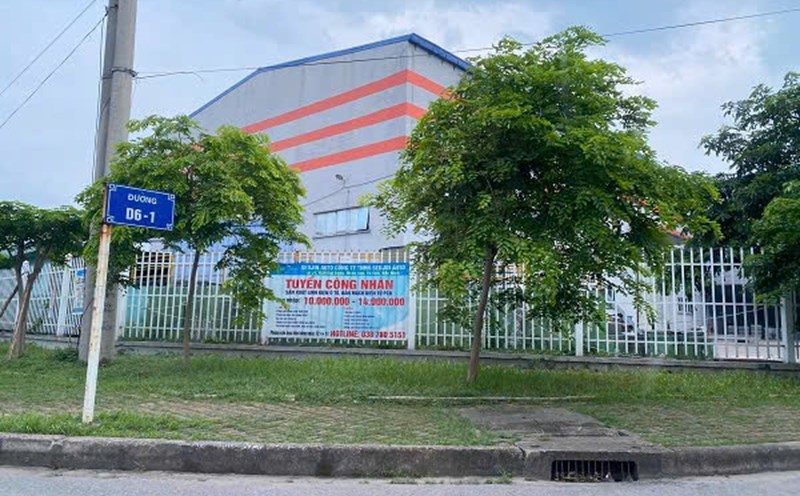Promoting the proactiveness of the press in policy communication
After more than 100 years of formation and development, Vietnamese press has always been a shock force on the ideological and cultural front, a reliable bridge between the Party, State and people. Not only stopping at conveying information, the press also plays an important role in monitoring, criticizing and participating in policy making. In the context of integration and digital transformation, as people's need for access to information is increasing, requiring transparency, accuracy and timeliness, this role becomes even more urgent.
Policy is a top priority issue in the socio-economic development of each country. In recent years, press agencies in our country have played a good role as a bridge between the Party and the government for the people, becoming a democratic, two-way information forum, honestly reflecting the responsibility and legitimate aspirations of the people, including policy communication.
Policy communication is one of the important channels and ensures the exercise of people's mastery in participating in law-making; it is very important to strengthen and build people's trust in the Party and the State in each newly issued policy and guidelines.
With the advancement and popularity of digital technology and communication, modern society is changing rapidly. Social networks have become an indispensable part of daily life. In this trend, the role of the press and media is constantly challenged, and at the same time, it is also becoming more and more important.
A clear demonstration of the role of policy communication is demonstrated through the propaganda of the implementation of Decree 168/2024/ND-CP to contribute to building a culture of safe, healthy and civilized traffic participation. The new Decree also creates trust and consensus among the people, raising awareness in the initial stage and in the long term will shape awareness of complying with traffic laws, building a sustainable traffic culture.
"The task is very clear. That is to substantially reduce the number of traffic accidents. The figures on accidents, casualties, property damage... are a direct challenge to the protection of people's health, lives and property; greatly affecting socio-economic development. We need to innovate thinking and methods to make work truly practical" - Member of the Party Central Committee, Deputy Prime Minister Tran Hong Ha said at the National Online Conference to review the work of ensuring traffic order and safety in the first quarter of 2025; direction and tasks for the second quarter of 2025.
In particular, the Deputy Prime Minister has requested press agencies to step up communication work, raise people's awareness of legal knowledge as well as risks when participating in daily traffic.
The role of the press in building a new traffic culture is demonstrated above as just one of many stories reflecting the impact of the press on the success or failure of policies and guidelines developed and implemented by State management agencies. Without the press leading the way, policies and guidelines will hardly be widely accepted and followed by the people.
According to Dr. Tran Van - former Deputy Chairman of the National Assembly's Finance and Budget Committee, the relationship between the press and policymakers can be considered an inseparable component of society, especially in the context of an explosion of information and digitalization of media activities.
For the press to play a good role and function in communicating policies, Dr. Tran Van said that managers need to be more open to the press, considering the press as a two-way useful information channel to receive information in the process of building policies and laws, as well as in analyzing and assessing the impact of the draft law.
Keeping up with modern journalism trends
In order to strengthen policy communication work, in Directive No. 07/CT-TTg in 2023, the Government leaders identified this as an important task and function of State administrative agencies at all levels. Journalism and other forms of media are information channels, a basic and important method for implementing policy communication.
Regarding the activities of press agencies, Deputy Prime Minister Tran Hong Ha emphasized that press agencies have demonstrated flexibility, agility, the ability to analyze forecasts and explanations, and actively participate in policy making and development. Journalism works are expressed richly and diversely in many types.
" Jurnalism agencies need to research, select, proactively build brands, and cooperate with major partners around the world for strong development" - the Deputy Prime Minister emphasized.
In the coming time, press agencies will continue to inform and propagate towards the 14th National Party Congress, as well as the work of perfecting the grassroots political system to operate effectively and efficiently; actively propagate the Government's activities in amending and planning policies; large pilot projects; remove difficulties, restructure the economy; green energy transition... create consensus in society.
Learning from the experience of a small magazine but thanks to its grasp and development, the Deputy Prime Minister noted that in the coming time, press agencies need to research, select, proactively build brands, and cooperate with major partners around the world for strong development.
It can be seen that, along with the attention and direction, investment in resources of the Party and the Government, as well as the agencies directing and managing the press, journalists will increasingly fulfill their mission, effectively serving the revolutionary cause of the Party and the State; serving the interests of the people.











